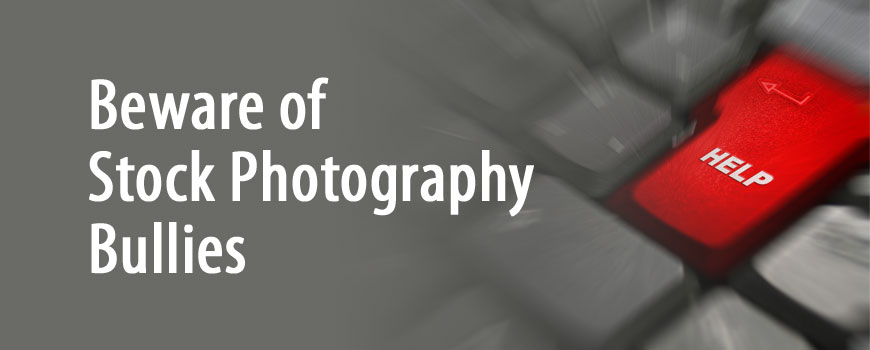
Beware of Stock Photography Bullies
As the saying goes “a photo is worth a thousand words”. However, in the age of stock photography licensing “a photo is worth a thousand dollars”. Photos and other digital images are used to enhance websites by conveying a certain message, can be used to break up multiple paragraphs of text, added to promotional print material, used in social media ads and more. One piece of advice I always give to our clients that want to find their own images is to always check the license agreement for all photos or digital assets. It is common to simply search on the Internet to find a good image, however if the license agreement does not clearly state that it is free to use, then most likely there is a required license fee. (Note: if you hire your own photographer or graphic designer, they will have their own contract, license or royalty agreement.)
In recent years, stock photography and image licensing has become big business. Licenses to use images, illustrations, and even videos can be purchased from $5.00 to over $500 (depending upon how the digital asset will be used). However, the downside of this is that without proper knowledge, an innocent person can be harassed or bullied by a stock photography company (real or fake) demanding back-payment for the use of a digital asset without a proper license or royalty agreement. These fees can range from hundreds to thousands of dollars.
Recently one of our clients was being consistently harassed by a company (who we will refer to as the Photo Bully) for having an image sitting on their web hosting server. The Photo Bully stated that this image was under their license agreement (or that of their client). This image was not used on the website (not visible) but was part of demo data that came packaged with a WordPress theme. Demo data is very common as it gives the end user an example of the layout options and functionality of the theme. From there the theme can be customized and/or re-programmed per the client’s specifications.
We (Sirius Web Solutions) decided to step in on our clients behalf because: 1) the image was not public, 2) the theme was legally purchased from a reputable company and 3) the demo data and associated images where packaged with the theme by the theme’s developer. We did some research to make sure that the Photo Bully was a legitimate company before proceeding. They appeared to be legitimate and depending on how this matter played out, we might have needed to file a complaint with the Better Business Bureau. After contacting the Photo Bully, they tried to insist that it was our client’s responsibility to make sure all images had the proper license. Of course this did not make sense as it is the responsibility of the theme’s developer to ensure all demo images have the proper license and if not, it should be clearly stated that the demo images should not be used publicly and be deleted from the hosting server.
From this point we deleted all demo images that came packaged with the theme from the hosting server and reiterated to the Photo Bully that it was not being used on the website. We sent a copy of the receipt (to prove that the WordPress theme was legally purchased), the contact information of the company where the theme was purchased, and the contact information of the theme’s developer. When the Photo Bully received this information they stated that these companies could contact them or they would be willing to settle for $450. Of course this was not sufficient for us as there was no wrong doing on the part of our client. We then decided to e-mail the company where the theme was purchased explaining this situation, as they have their own legal team to deal with Photo Bullies. There was a request from the company to see the image and any supporting documentation from the Photo Bully. So in our response we copied all involved parties in an e-mail message (the company where the theme was purchased, our client and the Photo Bully)….and we haven’t heard back from the Photo Bully.
So the moral to this story is when acquiring images, themes or any digital asset:
- Always read and completely understand the license and/or royalty agreement.
- Keep copies of all receipts from the purchases of digital assets.
- If you are contacted by a Photo (or digital asset) Bully, always ask for proof of the license breach and other supporting documentation. When responding to them include the company and/or person where the digital asset was purchased as they would be responsible for making sure all accompanying digital asset licenses are in place (this will help keep a virtual paper trail).
- If you are contacted by phone ask for all communication to be in writing via regular mail or e-mail. If they refuse then be skeptical because it might be a scam to get money.
We hope you find this information useful and feel free to contact us if you have further questions or would like recommendations for reputable digital asset companies.
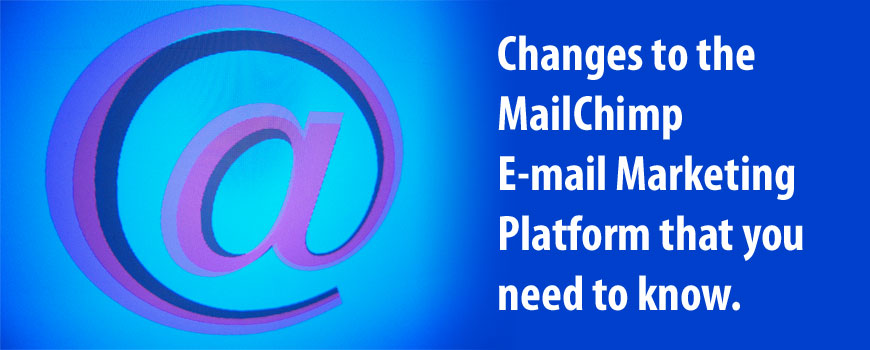
Changes to the MailChimp e-mail marketing platform that you need to know.
Recently, I was working on an e-mail marketing project for a client that is registered for a Free Account on the MailChimp e-mail marketing platform. To our surprise some the features and functionality for the free account have changed. The free MailChimp account is one that I have recommended to many clients as it allows you to have up to 2,000 e-mail addresses in your mailing list. It is a good starting place to manage e-mail marketing campaigns and strategies. This same client and I conducted a little research, online and in MailChimp’s support documentation, to find some workarounds for the features that are no longer available on the free account. My client came across the following article that provides a good overview of the recent changes to the free and paid accounts on MailChimp: CLICK HERE to read the article
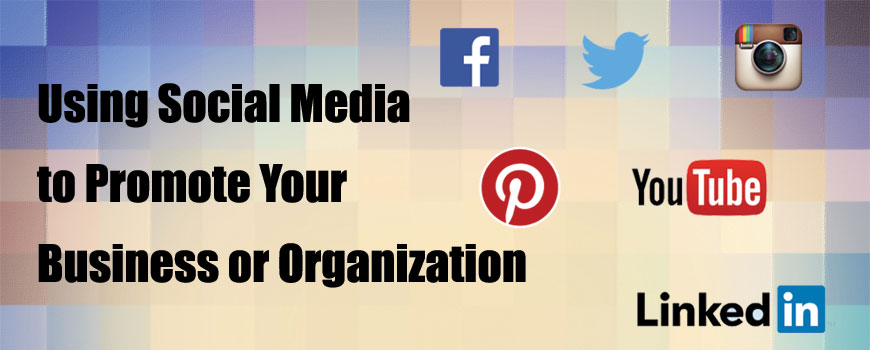
Using Social Media to Promote Your Business or Organization
Social Media has become an effective, low-cost solution to promote your business or organization. Various platforms now provide the ability to launch ad campaigns to help boost sales, promote the services you provide, promote events, request donations and much more. Listed below are a few helpful tips on how to use social media to promote your business or organization:
- It is not required to have an account on every social media platform. Your target audience will determine which social media platforms you should use for your business or organization.
- Using the statistics provided by each social platform will help you determine the best days and times to post or display ads to your target audience.
- Include images, graphics or videos with your social media posts or ads, as using visuals will catch the eye more so than text.
- Post links to your social media accounts on your website and vice versa.
- List social media links in your e-mail signature (especially for those that do not have a website).
- Have consistent branding on your website, social media platforms, digital and print marketing materials.
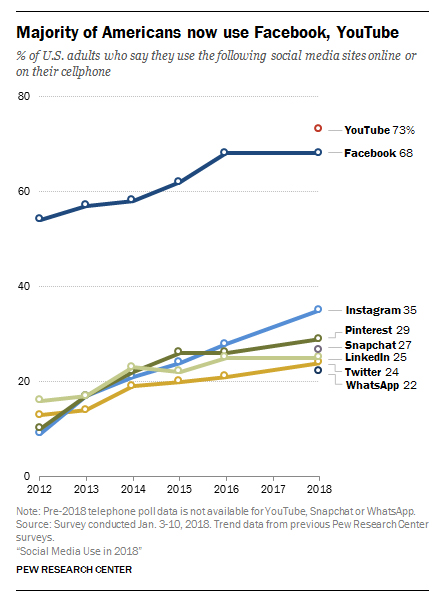
Based on the article titled “Social Media Use 2018” that references a Pew Research Center study, the following social media platforms are recommended for use.
- YouTube: 73 % of all U.S. adults use YouTube
- 91% age 18-29, 85% age 30-49, 68% age 50-64, 40% age 65+
- The video-sharing site YouTube – which contains many social elements, even if it is not a traditional social media platform – is now used by nearly three-quarters of U.S. adults and 94% of 18- to 24-year-olds.
- Facebook: 68% of all U.S. adults use Facebook
- 81% age 18-29, 78% age 30-49, 65% age 50-64, 41% age 65+
- “Roughly two-thirds of U.S. adults (68%) now report that they are Facebook users, and roughly three-quarters of those users access Facebook on a daily basis. With the exception of those 65 and older, a majority of Americans across a wide range of demographic groups now use Facebook.”
- Instagram: 35% of all U.S. adults use Instagram
- 64% age 18-29, 40% age 30-49, 21% age 50-64, 10% age 65+
- “35% of U.S. adults now say they use this platform, an increase of seven percentage points from the 28% who said they did in 2016.”
- Pinterest: 29% of all U.S. adults use Pinterest
- 34% age 18-29, 34% age 30-49, 26% age 50-64, 16% age 65+
- “Pinterest remains substantially more popular with women (41% of whom say they use the site) than with men (16%).”
- Snapchat: 27% of all U.S. adults use Snapchat
- 68% age 18-29, 26% age 30-49, 10% age 50-64, 3% age 65+
- “78% of 18- to 24-year-olds are Snapchat users, but that share falls to 54% among those ages 25 to 29.”
- Twitter: 24% of all U.S. adults use Twitter
- 40% age 18-29, 27% age 30-49, 19% age 50-64, 8% age 65+
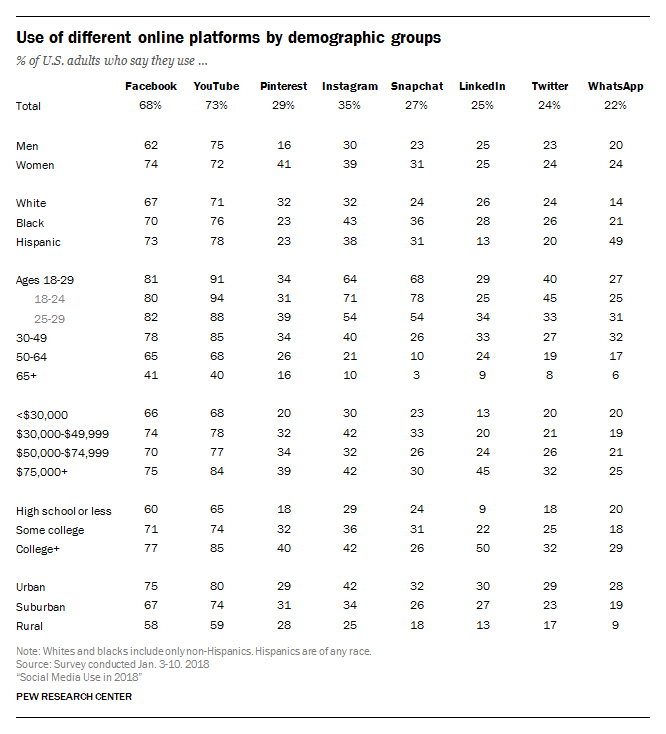
Source: http://www.pewinternet.org/2018/03/01/social-media-use-in-2018/
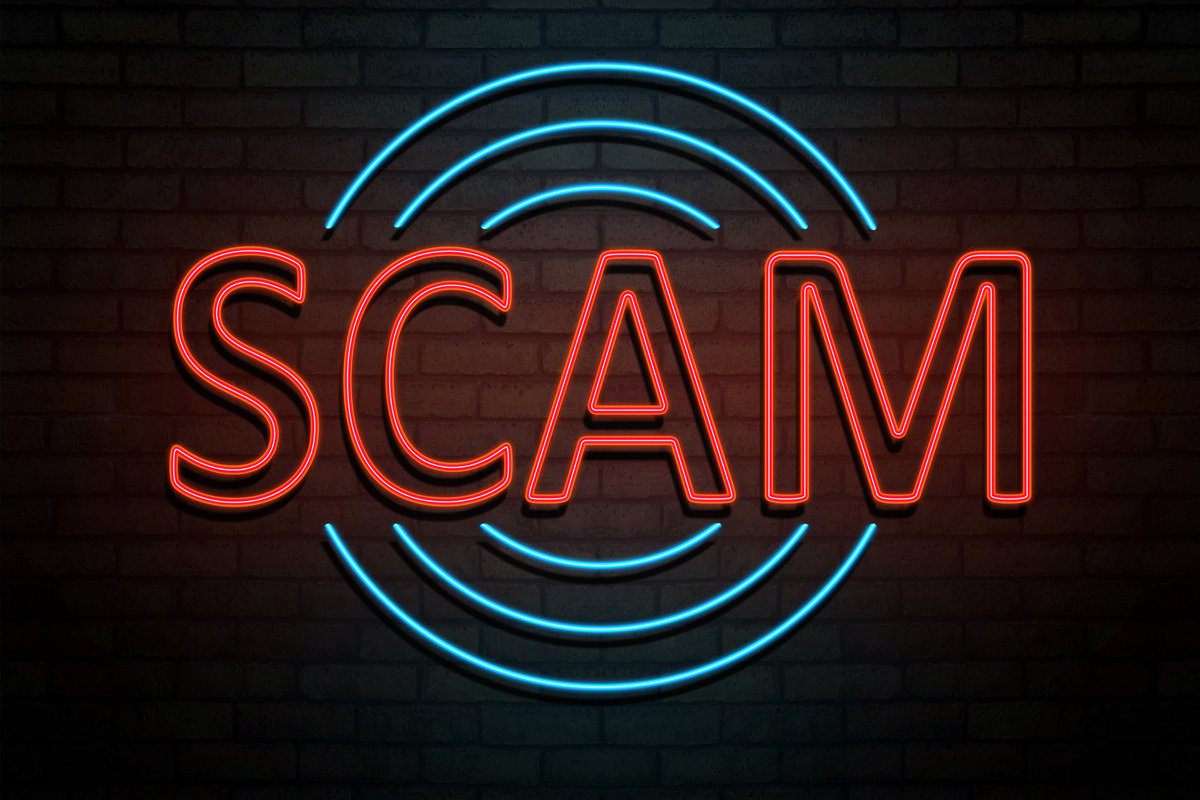
How to protect yourself from online scams and ransomware
As technology evolves, now more than ever there are multiple access points to our personal information and devices (mobile or desktop). As a result we have to be more cautious when clicking on links in e-mail messages, visiting websites and downloading files to our computers. Ransomware and malware are constantly being released on the Internet and e-mail scams are frequent guests in our inboxes, so we have to take precautions when accessing online content. The following article provides some tips on how to avoid and remove ransomware.

Beware of False Domain Name and SSL Certificate Expiration Notices
Since Google initiated the practice of flagging websites as “not secure” on their search engine results pages, other major search engines are taking more steps to “encourage” the use of Secure Socket Layer (SSL) certificates (https). As a result many of you are receiving e-mail messages from random companies stating that your SSL certificate and/or domain name is about to expire. Along with this message comes an invitation to renew these services. Please note that this may be an attempt to move your service from the original company your SSL certificate or domain name was initially registered to their company (which probably is not a reputable company based on these sales tactics). It is important to check from what e-mail address this message was sent and check your previous receipts or payment notifications to confirm that the company making this contact is in fact your original registrar. When in doubt contact your Website Developer/Webmaster or web hosting company for verification before submitting a payment.
For those that have registered their domain name, SSL certificate or web hosting with Sirius Web Solutions we will always try to give our clients at least a 30-45 day notice before the expiration of these services.

